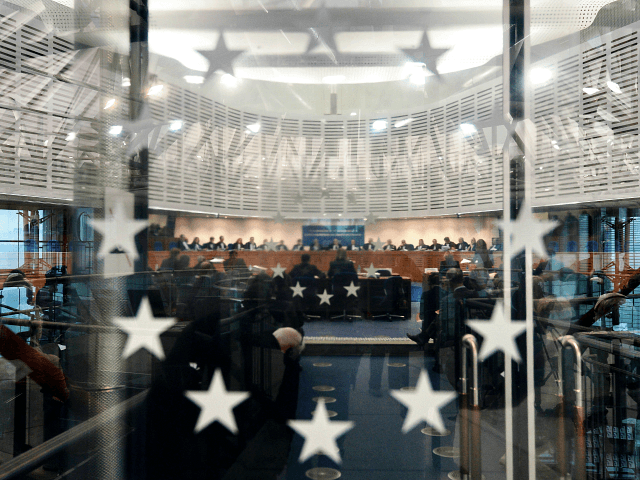As Britain finally crawls towards its long-promised departure from the European Union, the timing is right to consider its place in the flawed European Court of Human Rights (ECtHR) — a body the ruling Conservative Party promised to take the country out of in its 2015 election manifesto.
The European Centre for Law and Justice’s (ECLJ) 2020 report on the relationship between the powerful judges of the ECHR and the non-governmental organisations (NGO) they have been involved in highlighted these issues.
Remarkably, 22 of the 100 judges who have sat since 2009 are former collaborators of seven NGOs active at the ECtHR and 18 of them have ruled on 88 cases involving their own former NGOs — direct conflicts of interest. Twelve judges are linked to the Open Society Foundations of George Soros, which also funds the other six organisations mentioned in this report.
The case of Big Brother Watch v. the United Kingdom is emblematic of these inappropriate relationships at the European court. It is still pending before the Grand Chamber of the ECtHR, with 10 of the 16 applicant NGOs funded by the Open Society, as are six of the NGOs acting as third parties. Out of the 17 judges who have sat in the Grand Chamber, six are former collaborators to the applicant and intervening NGOs.
This is a grave violation of the most elementary principles of judicial ethics and calls into question the independence and the impartiality of the court.
European Human Rights Court Rules Against Christian Midwives Who Will Not Abort Babies https://t.co/rsm59ikilO
— Breitbart London (@BreitbartLondon) March 14, 2020
A similar situation happened in 1998 in the United Kingdom, in the famous Pinochet case. After a first ruling at the House of Lords, it emerged that one of the Law Lords was an unpaid director of Amnesty International Charity Ltd, whereas Amnesty International intervened in the case in support of the extradition of Mr Pinochet. A significant scandal followed this revelation. The case was eventually heard again by other judges, who reversed the ruling. You might say the present situation at the ECtHR is 88 times that of the Pinochet case.
This situation has achieved political attention across Europe. The Bulgarian Minister of Justice Danail Kirilov expressed his concern, asserting that the Bulgarian judge at the ECHR could be dismissed because he had sat in three cases brought by NGOs he has funded himself.
The court is not without friends, though. Vice-President of the European Commission Věra Jourová declared her office “has no doubt as regards the integrity and independence” of the ECHR, and that the Union’s accession to the European Convention on Human Rights “is a priority for the Commission”.
Ms Jourová has made no secret of the fact that the “values” of Soros’s NGOs are “at the heart of EU action.”
Discussed #FundamentalRights situation in #Europe with @georgesoros. Open society values are at the heart of #EU action. @osfEUpolicy pic.twitter.com/iX85gXRaUM
— Věra Jourová (@VeraJourova) April 27, 2017
So what for the future of the ECtHR? Reform is possible — 150 lawyers identified five precise measures in order to reform the court.
The ECtHR, in their opinion, should ensure it respects the rules it prescribes for national courts in terms of rights to a fair trial; to require judges to publish declarations of interest; to inform in advance the parties of names of their judges; to impose on judges the obligation, and not merely the possibility, to inform the President in case of doubt as to their objective independence or impartiality; and to establish effective procedures for withdrawal and disqualification.
The Parliamentary Assembly of the Council of Europe (PACE) — which elects the ECtHR judges — will also be seized of the issue by a petition initiated by the ECLJ, following the official procedure allowing any person to request the inclusion of a subject on its agenda.
But that may all be for nothing if the United Kingdom does withdraw from the ECtHR, as has been discussed. As the former ECtHR judge Boštjan Zupančič noted of a potential British departure to forge its own way: “If it withdraws from the Council of Europe and the ECtHR… that is the beginning of the end of the court.”
Deportation of Notorious Radical Islamic Preacher Halted by European Court https://t.co/oRDGW0Ns8Z
— Breitbart London (@BreitbartLondon) April 19, 2018
Nicolas Bauer is a lawyer and a Research Fellow at the European Centre for Law and Justice (ECLJ) in Strasbourg, France

COMMENTS
Please let us know if you're having issues with commenting.